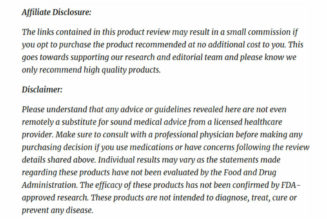
Meeting the unmet needs of older patients by addressing the social determinants of health (SDoH) can provide better quality care and cut health care costs, according to research presented at the Gerontological Advanced Practice Nurses Association (GAPNA) annual meeting held September 27-30, 2023, in New Orleans, Louisiana. Caroline Monroe, MS, RN, APN-C, AHN-C, presented the data collected from a plot study conducted within the Optum Care Delivery Organization.
There were 3 motivating factors for this study, Monroe said.
- There are many documented correlations between patient outcomes and their met and unmet SDoH) needs: economic stability, education access, and quality, health care access and quality, neighborhood and built environment, and social and community context.1,2
- The National Committee for Quality Assurance (NCQA) recently released a new Healthcare Effectiveness Data and Information Set (HEDIS) specifically designed to address social determinants of health.3,4 Optum is an NCQA-accredited program and the new information set includes a social need screening and intervention quality measurement.
- The new ICD-10 CMS Z-codes for social determinants of health are scheduled to be active by 2024.
Continue Reading
The pilot study centered around patients’ unmet food, housing, and transportation needs. According to the researcher, patients with unmet food needs are 2.4 times more likely to go to the emergency department (ED) for care, while people with transportation issues are 2.6 times more likely to go to the ED, at an average cost of approximately $1100 per visit. Patients living in unstable housing conditions are 4 times more likely to be hospitalized, at an average cost of $15,000 per visit.
The study was conducted at 3 clinics in different regions of Texas, with the target population limited to high-risk Medicare Advantage patients. Researchers identified 270 patients that met the study qualifications, screened 226 people, and identified 64 patients as having unmet SDoH needs.
Staff members received training using PRAPARE (Protocol for Responding to and Assessing Patients’ Assets, Risks, and Experiences) reporting forms and the website FindHelp.org to identify patients’ needs and guide them to resources during their clinic visits. During the study period, clinic staff connected 94% of patients with additional resources after their initial screenings. The remaining 6% of patients were referred to social workers, according to the study protocol.
During the course of this pilot study, the researchers reported a 17% reduction in ED visits, a 26% reduction in emergency spending, and a 53% decrease in inpatient hospital spending. The cost savings well outpaced the estimated costs to implement SDoH screening, which included $100 to integrate the PRAPARE screening tool with their current electronic medical records system and $50 per month for the use of the FindHelp.org website.
At the end of the pilot study, the research group distributed qualitative surveys to the clinic staff for their feedback. All of the responses were positive (though the number of returned surveys was not disclosed). The staff noted that both the PRAPARE forms and the FindHelp.org website were easy to use and navigate. In addition, staff felt empowered to meet these social needs of their patients. Optum plans to expand this study to their entire care and delivery system in Texas and Florida.
Disclosure: Optum was a sponsor of the 2023 GAPNA conference.
Visit Clinical Advisor’s meetings section for more coverage of GAPNA 2023
Source
Monroe C, Hernandez L, Javier, N. Meeting Social Determinants of Health Measures for Quality Care. Poster presented at: GAPNA; 27-30, 2023; New Orleans, LA.
References
1. Social Determinants of Health. Healthy People 2030 website. Accessed October 5, 2023. https://health.gov/healthypeople/priority-areas/social-determinants-health
2. Social Determinants of Health. World Health Organization website. Accessed October 5, 2023. https://www.who.int/health-topics/social-determinants-of-health
3. Spaulding B. NCQA releases its social determinants of health resource guide. National Committee for Quality Assurance (NCQA) website. Published October 30, 2020. Accessed October 5, 2023. https://www.ncqa.org/blog/ncqa-releases-its-social-determinants-of-health-resource-guide/
4. Social Determinants of Health Resource Guide. National Committee for Quality Assurance (NCQA) website. Accessed October 5, 2023. https://www.ncqa.org/blog/white-papers/sdoh-resource-guide/









